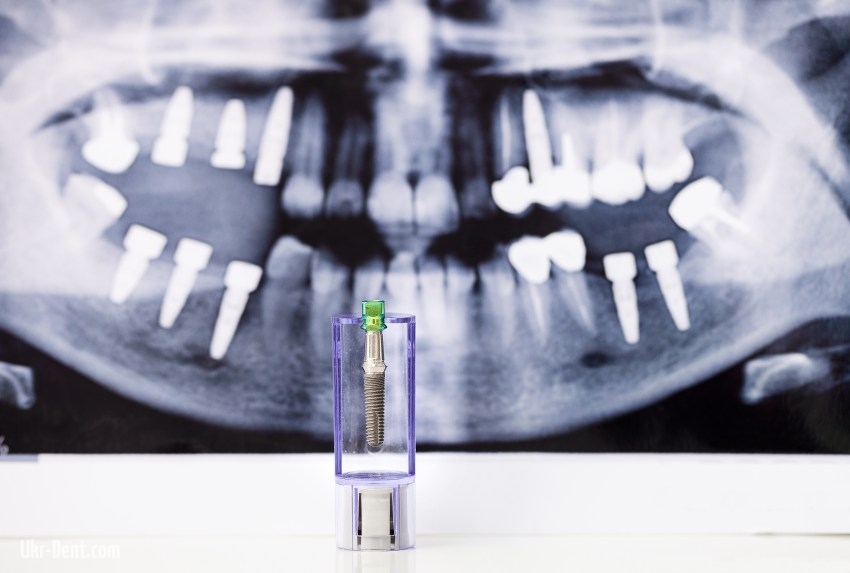Why does a modern person need a perfect smile?
The modern world dictates its own rules: a smile is not only an expression of emotions, but also a business card, a symbol of confidence and well-being. People meet you by your appearance, and see you off not only by your mind, but also by how you smile at the end of an acquaintance. However, for those who are faced with complete edentia, a smile turns from an everyday gesture into a dream. The solution to this problem lies in innovative methods of prosthetics on implants “all on 4” and “all on 6”. These technologies have already proven their effectiveness and have become a real salvation for thousands of patients.
A historical look at tooth restoration methods
Once, restoring teeth in case of complete loss was akin to art – artisans created wooden and metal dentures that were more frightening than they restored functions. In the 19th century, dentistry took a step forward: removable dentures appeared, which, although they looked a little better, still caused a lot of inconvenience.
With the advent of implantology in the 20th century, everything changed. Pioneers of this field, inspired by the natural connection of materials and bone tissue, began to develop ideas for fixing dentures directly in the jaw. After decades of evolution, the concept of “all on 4” and its more stable version “all on 6” appeared. These methods allowed people with complete edentia not only to wear dentures, but to live a full life, as if their teeth had never been lost.
Scientific approach to implantation technologies
What makes the “all on 4” and “all on 6” methods unique? It’s all about well-thought-out biomechanics and the use of the most modern materials.
Implantation takes place in two stages. First, the doctor installs four or six implants at a certain angle, depending on the condition of the bone. This angle is not random – it allows for the most effective distribution of the load when chewing. Then, after the period of osseointegration, when the implants fuse with the bone tissue, a fixed denture is installed on them, imitating natural teeth.
Long-term studies confirm that these methods provide not only high aesthetics, but also durability. Moreover, even in cases where the patient’s bone is lost due to a long-term absence of teeth, implantation remains possible due to preliminary tissue regeneration.
Patient’s story
Maria was embarrassed about her smile for a long time. Having lost all her teeth after a serious illness, she avoided mirrors and public events. The removable dentures that she was offered at the initial stage turned out to be too inconvenient: they rubbed her gums, were poorly fixed and caused discomfort.
Doctors recommended the “all on 4” method to Maria. After the first consultation, her doubts gave way to hope: the technology turned out to be accessible, and the procedure itself was not as complicated as she had assumed. Just three months after the installation of the implants and prosthesis, Maria smiled at herself in the mirror for the first time in a long time. “It’s like I was born again!” she now admits.
Technology through the prism of patient emotions
Imagine the moment when you feel confident for the first time in your life because your smile is no longer hidden behind your palm. The “all on 4” and “all on 6” system gives not just teeth – it returns people the joy of communication, the taste of food and a sense of self-worth.
Every patient who goes through this path talks about changes not only in appearance, but also in life. A person who previously avoided meetings, business negotiations or family photos begins to live a full life. After all, a smile is not just aesthetics, it is health and happiness.
Doctor’s answers to the most frequently asked questions
In dentists’ offices, patients often ask questions related to the technique. For example: “Is it possible to install implants if the jaw bone is atrophied?” Answer: yes, modern medicine allows this thanks to preliminary bone grafting procedures.
Or: “Does it hurt?” The operation itself is performed under anesthesia, and postoperative pain is minimal and easily relieved.
Another popular question: “How long will it last?” With proper care, dentures on implants last more than 10-15 years, and the implants themselves – a lifetime.
Philosophy of trust and professionalism
For a dentist, every smile is an art. And the “all on 4” and “all on 6” methods are tools for creating a masterpiece. But the basis is not only technology, but trust between the doctor and the patient.
Before starting treatment, we talk about all the stages, show examples and find a personal approach to everyone. This is not just prosthetics – it is a journey into a world where you feel confident again.
Your path to a new life begins today
The “all on 4” and “all on 6” implantation technologies are a real revolution in dentistry, which has already changed the lives of millions of people around the world. Today, it is available to you too.
Don’t put off the opportunity to smile with pleasure. Take the first step towards change: sign up for a consultation and find out how easy it is to regain your health, confidence, and joy in life. Your new smile is waiting for you!


Leave a Reply